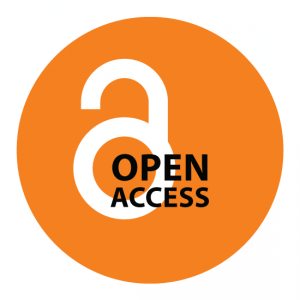 It’s always questionable to blog about something that is gaining attention because it’s illegal, but that’s the case with the latest crop of articles about open access in popular media. While the scientific community has been debating the merits of open access for a while now, the business behind scientific publishing is getting a lot more attention lately because of Alexandra Elbakyan, a graduate student from Kazakhstan who has hacked into hundreds of scholarly journals.
It’s always questionable to blog about something that is gaining attention because it’s illegal, but that’s the case with the latest crop of articles about open access in popular media. While the scientific community has been debating the merits of open access for a while now, the business behind scientific publishing is getting a lot more attention lately because of Alexandra Elbakyan, a graduate student from Kazakhstan who has hacked into hundreds of scholarly journals.
Elbakayn leaked millions of documents, opening a (albeit illegal) door for the public to freely access just about every scientific paper ever published.
To some, Elbakyan is a hero – taking a stand for the public’s right to know. To others, she is a criminal.
“Realistically only scientists at really big, well-funded universities in the developed world have full access to published research,” said Michael Eisen, a professor at the University of California, Berkeley, and a longtime champion of open access. “The current system slows science by slowing communication of work, slows it by limiting the number of people who can access information and quashes the ability to do the kind of data analysis” that is possible when articles aren’t “sitting on various siloed databases.”
This from The New York Times:
Journal publishers collectively earned $10 billion last year, much of it from research libraries, which pay annual subscription fees ranging from $2,000 to $35,000 per title if they don’t buy subscriptions of bundled titles, which cost millions. The largest companies, like Elsevier, Taylor & Francis, Springer and Wiley, typically have profit margins of over 30 percent.
You can read more about open access:
“It’s as if somehow stealing content is justifiable if it’s seen as expensive, and I find that surprising,” said Alicia Wise, director of universal access at Elsevier. “It’s not as if you’d walk into a grocery store and feel vindicated about stealing an organic chocolate bar as long as you left the Kit Kat bar on the shelf.”
Elbakyan is currently in Russia, where a federal court order isn’t enforceable. Because of that, her website Sci-Hub is still up and running, with over 10 million visitors so far. Elbakayan told The New York Times that because she sees the internet as a “global brain,” paywalls should not exist in order to provide the free flow of content that can help build society.
Some critics do not believe that Elbakyan’s “guerrilla tactics” help the cause. Instead, they encourage researchers to publish in journals such as PLOS. However, many publication’s open access models come with a hefty processing charge (sometimes running up to $3,000 per article).
While ECS does not condone Ms. Elbakyan’s actions, the idea of removing barriers to scientific knowledge is the spirit behind ECS’s Free the Science initiative. The idea that science needs to be open is obviously important—otherwise it wouldn’t be getting so much attention. ECS believes that discoveries need discoverability. Science means progress, and progress means finding solutions to some of our world’s most pressing problems. The research that ECS stewards and publishes can help find these solutions.
Learn more about our Free the Science campaign.
[Image: Scott Gelber]
